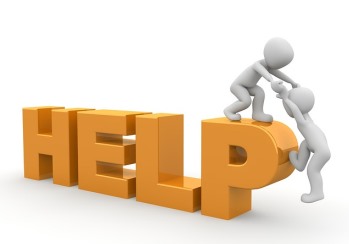Like any pastime, gambling can be a source of fun and entertainment but it can also be highly addictive. Unfortunately, gambling for some people becomes more than a fun time and occasional distraction or hobby.
Some people become addicted to the highs associated with the activity and can lose control of both their behavior and the money they're spending. The consequences of such a problem are quite obviously very severe - losing money one can't afford, damaged relationships with friends and family, detrimental effect on one's job, etc. Gambling addiction is a serious problem for many people and there are differing degrees. Before getting hooked or spending any money, take the time to familiarize yourself with the issue and understand its signs, symptoms, and the help available for combating it. In this article you will find the major signs of gambling addiction, in addition to offering advice on how to recognize and deal with addictive behaviour.
 Although a great number of gambling addicts may realise they have a problem, the impulse to recreate the ecstasy of winning is infinitely more powerful. Addiction is most often associated with substances such as alcohol, nicotine and various other prescription or illegal drugs. On a very basic level it can be attached to any activity or substance that is consumed or carried out to an unhealthy level. Addictive activities include shopping, eating, video gaming or even competitive sport. It also comes in the form of month-long gambling binges in front of a computer into the early hours of the morning.
Although a great number of gambling addicts may realise they have a problem, the impulse to recreate the ecstasy of winning is infinitely more powerful. Addiction is most often associated with substances such as alcohol, nicotine and various other prescription or illegal drugs. On a very basic level it can be attached to any activity or substance that is consumed or carried out to an unhealthy level. Addictive activities include shopping, eating, video gaming or even competitive sport. It also comes in the form of month-long gambling binges in front of a computer into the early hours of the morning.
Having a gambling problem and becoming an addict is not a conscious decision. It can be caused by a number of different factors, including genetic vulnerability, social pressures, personality characteristics and psychiatric problems. In a lot of cases, it starts with one seemingly harmless action. In the case of gambling, this could be placing a small bet on a winning team.
The internet has added yet another level of addiction for those who do not manage their gambling problem. In tandem with this, online gambling has allowed the gambler to escape into an insular world where there are seemingly no boundaries. The combination of these technologies has meant that the gambler or potential gambler should take control from day one to prevent fun from becoming destructive.
To work out whether you or someone you know is experiencing difficulties due to gambling, try answering the following questions:
Check your score below:
1-2: at-risk
3-4: gambling problem
5 or more : compulsive gambler
Given the current online and offline gambling climate, and based on current research, the best way to stay in control is to set personal spending limits from the moment you start. The ideal time to do this is from the very first moment you place a bet, go online to gamble, or engage in any form of activity where there is money and odds involved. Don’t spend more than you can reasonably afford to lose.
Responsible gambling doesn’t stop with the points mentioned above. There are other suggestions to help you out if you have a problem gambling, especially as an online gambler:
 Compulsive gambling, problem gambling, gambling addiction... Call it what you will, but whatever it is, it's a serious issue in today's gaming industry. Recent reports suggest that gambling problems, in general and across all demographics, is on the rise. According to the most recent statistics from the National Council on Problem Gambling (NCPG), as much as 5% of the adult population exhibits the traits of a compulsive gambler with 1% exhibiting pathological gambling problems (aka gambling addiction).
Compulsive gambling, problem gambling, gambling addiction... Call it what you will, but whatever it is, it's a serious issue in today's gaming industry. Recent reports suggest that gambling problems, in general and across all demographics, is on the rise. According to the most recent statistics from the National Council on Problem Gambling (NCPG), as much as 5% of the adult population exhibits the traits of a compulsive gambler with 1% exhibiting pathological gambling problems (aka gambling addiction).
If you suspect that you, a family member, or a friend may be a compulsive gambler, remember that there's always help available. There is never any shame in recognising you have a problem, and asking for help when you need it – in fact, it’s actually a sign of courage and strength to admit you have a problem and then take the steps to fix the issue. Contact your local gambling addiction authority for assistance. We have listed some useful links and contact numbers below: